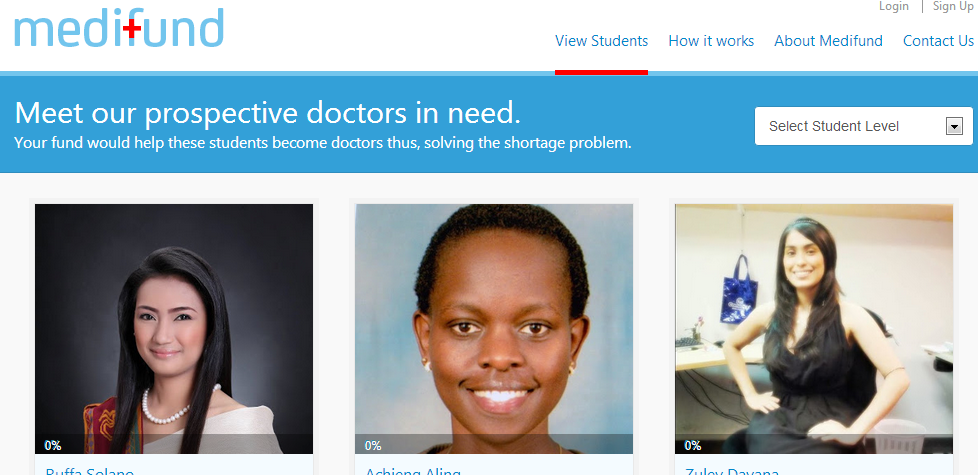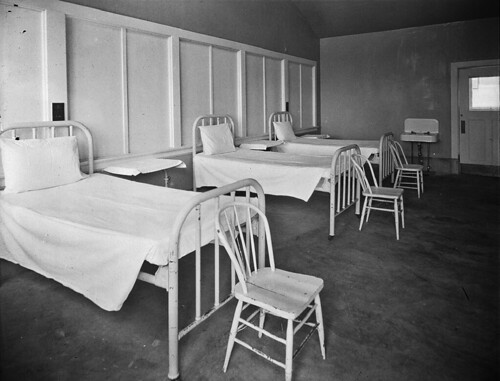In the United States, we don’t think much about not having enough doctors. It seems like everywhere we turn there are more doctors.
But it’s not like that in other parts of the world, and those areas desperately need good medical care. According to Jossy Onwude, the US is actually on track to be 90,000 doctors short by 2015.
Why is it so hard to get good doctors? Well, have looked at the cost of medical school lately? (Hint: it’s a lot.)
So, Onwude and his team from Startup Weekend Cebu, Philippines are solving that problem by crowdfunding medical education. They soft-launched earlier this year, and are already seeing interest from investors and users alike.
Check out our Q&A with Onwude below.
What does your company do?
We are crowdfunding future doctors for areas with shortages/the whole world.
Who are the founders, and what are their backgrounds?
Jossy Onwude, MD student who has founded two startups in the past
Leo, a very versatile Python programer
Faye, a brilliant Python programmer
Michael, A very good designer/User experience expert for 7 years
What’s the story behind your idea?
Medifund started when I was looking for a way to help a friend of mine who was about to drop out of med school. We searched for a way to help her raised funds but couldn’t find any. So I said to myself, “Why not start one?”
Then the idea began but now we are not just trying to help med students, but we want to create more doctors for the people of the world.
Where are you based?
We are based in Cebu, Philippines
What’s the startup scene like where you are based?
The startup scene here is pretty immature. But there is progress and things are getting better. Not the way they were two years ago. The talent is there, but the major problem we face here is funding. Not enough angels and VCs.
Why now?
Because this is the best time to start. It’s been estimated that by 2015 the United States alone would face a doctor shortage of 90,000 physicians. So its better we act now and try to solve that.
What are your next milestones?
Complete our funding round, release loan feature(so that students can have better chance of getting the money they need), add marketing staff, and add more features
Where can people find out more? Any social media links you want to share?
To find out more visit www.medifund.co or check out our fb page at www.facebook.com/medifund or on tiwtter atwww.twitter.com/medifund_co








